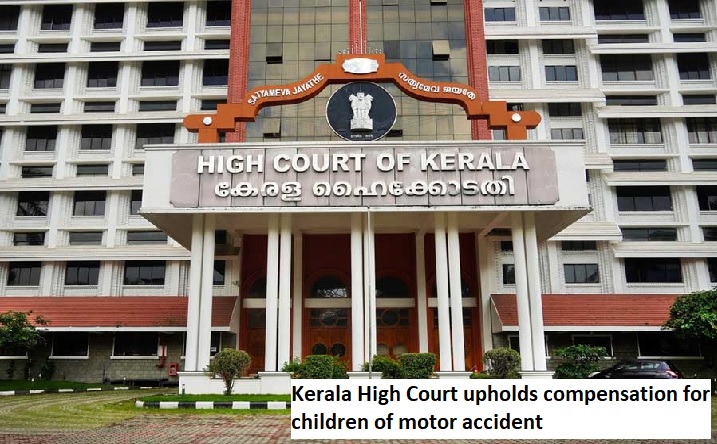


The Kerala High Court upheld a Motor Accident Claims Tribunal award, granting Rs.3,18,700 compensation plus interest to the children of a mother who died by suicide after a motor accident.
Justice Mary Joseph noted that the deceased had sustained head injuries in the accident and had been experiencing disappointment and mental distress, believing she wouldn't recover from her physical condition.
"In light of the medical evidence and the criminal case records, it is a safe conclusion that the victim took her own life due to the mental distress and disappointment resulting from the severe injuries sustained in the motor accident. In other words, Mrs. Santha's death can be attributed to the motor accident she experienced."
The Insurance Company filed an appeal against the Motor Accident Claims Tribunal, Irinjalakkuda's decision to award compensation to the respondents following their mother's suicide subsequent to a road accident.
The deceased suffered severe injuries in the accident and tragically committed suicide through self-immolation on June 24, 2005. Her children, the claimants, argued that her suicide was a consequence of the emotional anguish and despair stemming from her injuries. The Tribunal issued a unified award for three distinct original petitions, instructing the appellant to deposit compensation.
Following the motor accident, the mother of the respondents tragically immolated herself, leading the Tribunal to direct the insurance company to provide compensation of Rs. 3,18,700 along with interest. The respondents asserted that their mother's suicide was a consequence of the emotional distress and disappointment arising from her injuries sustained in the motor accident.
The counsel for the Insurance Company, Advocates Lal K. Joseph and Suresh Sukumar, argued that there was no clear link between the victim's suicide and the motor accident. They also raised doubts about the authenticity of the medical records presented as evidence.Top of Form
The Court pointed out that the motor accident happened on March 15, 2005, and the mother tragically took her own life on June 24, 2005. The Court also emphasized that the medical reports indicated the mother had suffered significant head injuries in the motor accident.
The Court acknowledged the argument that the mother could have experienced neurological depression as a result of the head injury sustained in the accident.
According to the CT scan report labeled as Ext.A5, it was observed that the victim had suffered a haemorrhagic contusion in the left-sided tentorium cerebellae and adjacent cerebellar hemisphere. The primary argument put forth is that a severe brain injury can lead to neurological depression. The contention is that any substantial injury capable of disrupting normal brain function and essential neurotransmission processes might result in a state of depression. This information is crucial in a legal or medical context, as it sheds light on the potential consequences of the victim's injuries. Essentially, the report indicates that the brain injury may have played a significant role in causing neurological depression, emphasizing the intricate relationship between brain trauma and mental health outcomes.
In the court's findings, it was established that the respondent, who is the son, testified that the doctors had advised him that there was a likelihood that the mother would experience future mental or psychological issues as a result of her head injury. Additionally, the court took note of the medical opinion that the doctors had provided, stating that there was no potential for a full recovery for the mother. This information underscores the gravity of the mother's condition, as medical professionals had indicated that her head injury could have long-term psychological consequences, and a complete cure was deemed unattainable. These findings likely played a crucial role in the court's decision and may have influenced the legal proceedings regarding the case.
The court further considered the significant point that, following her discharge from the hospital, the mother exhibited signs of mental or psychological issues, including memory disturbances. The medical report corroborated this by indicating a potential for behavioral changes in the mother. This information underscores that the mother's condition deteriorated after leaving the hospital, with observable cognitive and behavioral alterations. It is likely that these observations played a crucial role in the court's deliberations and may have been influential in the legal proceedings pertaining to the case, as they demonstrate the direct connection between the head injury and subsequent mental and behavioral challenges experienced by the mother.
TAGS: Court findings Respondent son Doctor's advice Head injury Mental or psychological problems Lack of complete cure Memory disturbances.